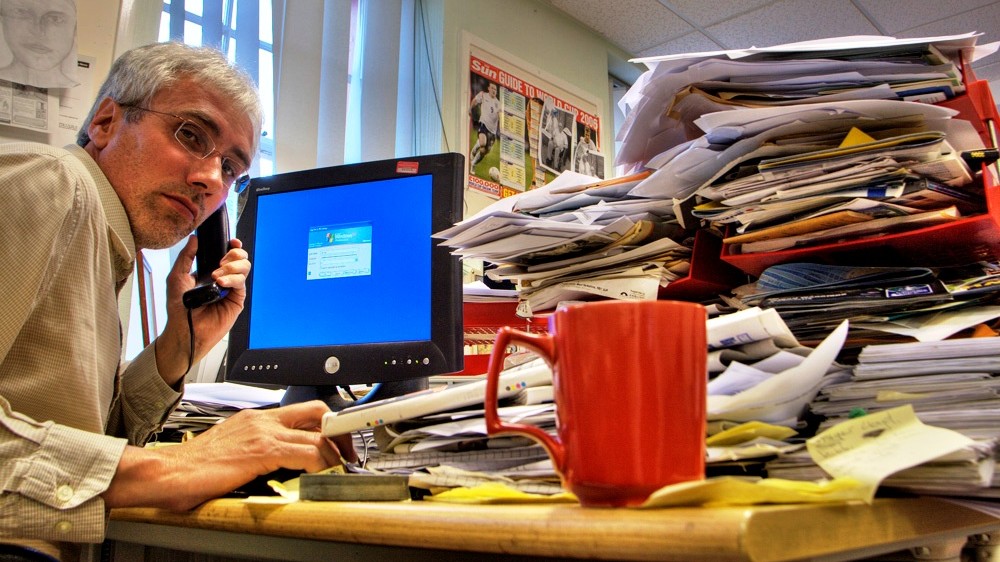#SuccessfulPeople :The One Thing To Prioritize To Be More Effective.
There is no dearth of information or advice about how to be more effective, including Stephen Covey’s famous book, a whole industry around time management, advice to shorten meetings (or cancel them altogether), advice to meditate and take naps, advice to wake up early and exercise, and advice from a wide variety of gurus, coaches, nutritionists, and more — all who want to help you be more effective at work by managing your energy, your time, your focus, and your priorities.
My advice for being more effective is simple.
Don’t be the bottleneck.
If you want to maximize not just your own effectiveness but that of your whole organization, the worst thing you can do is be the bottleneck. In today’s world of work, processes are intertwined across teams and companies such that a delay in your part of the process creates a bottleneck and delays for everyone else in your organization. And for your customers.
It is a subtle shift, but much of the advice on prioritizing work is focused on your activities that are part of your job and things that you need to do in a vacuum. Some people will tell you to do the quick things first so you can knock them off of your list. But what if the quick things impact you but don’t necessarily move the process of work along to others?
Like this Article? Share It! You now can easily enjoy/follow/share Today our Award-Winning Articles/Blogs with Now Over 2.5 Million Growing Participates Worldwide in our various Social Media formats below:
LinkedIn: https://www.linkedin.com/in/chris-g-laughter-b46389198/
Facebook: http://www.facebook.com/pages/First-Sun-Consulting-LLC-Outplacement-Services/213542315355343?sk=wall
Twitter: Follow us @ firstsunllc
Best Daily Choice: Follow the Best of FSC Career Articles/Blogs @
https://twitter.com/search?q=bestoffscblog&src=typeahead_click
Question: Want the ‘the best/current articles/blogs on the web’ on Job Search, Resume, Advancing/Changing your Career, or simply Managing People?
Answer: Simply go to our FSC Career Blog below & type(#career, #leadership, #life) in Blog Search: https://www.firstsun.com/fsc-career-blog/
What Skill Sets do You have to be ‘Sharpened’ ?
Continue of the article:
Some will tell you to do the important and urgent things first, but what if you don’t include getting things to other people in your definition of important and urgent? And some people will tell you to make sure you’re blocking off time to think strategically, but what if you prioritize thinking about the future and end up becoming a hindrance to results in the here-and-now?
Throughout my career, after my first cup of coffee and a quick glance at emails and texts to make sure no crisis had emerged while I was sleeping, I’d prioritize my day’s activities based on who else needed something from me in order to do their work. Because I didn’t want to be the bottleneck. I didn’t want to be the one slowing down the team or threatening the delivery of a commitment to a customer or creating a drag on results.
Depending on the job, this has meant I’ve prioritized:
- Making and communicating decisions. (It still amazes me how many people avoid making decisions and then even when they make decisions, they forget to communicate them.)
- Signing approvals (or delegating them!).
- Meeting with customers to understand their pain points and then communicating those to account teams to figure out how to do better.
- Doing my part to get a new process or technology implemented.
- Getting the pricing and marketing programs ready for a new launch.
- Getting information to third parties, other teams, or my own teammates so they could advance and execute on initiatives.
- Ensuring efficient placement and receipt of orders with the supply chain and logistics teams by getting new technologies in place with the sales teams.
- Ensuring innovation teams had the resources, equipment, and machine time to create new solutions in the lab.
- Calling and pressuring people who weren’t doing their part such that they were becoming the bottleneck for me and my team. (This is not the fun part.)
Now I know some of you are thinking that if you spend all of your time doing things that others need, you’ll never have time to plan or to strategize or to coach your team. What I’ve found is actually the opposite. When you prioritize things that you need to do so that others can do what they need to do, much less organizational (and personal) energy is spent on following up, nagging, waiting, and complaining.
Less organizational (and personal) energy is spent on fire drills and emergencies that emerged because work did not flow smoothly across the teams and organizations and third parties. Less organizational (and personal) energy is spent stressing out over whether or not something will be done on time. And all of that organizational (and personal) energy gets shifted to thinking about the future rather than being anxious over whether something will get done in the present.
And there is an added bonus to prioritizing things that others need from you in order to get their work done. When you do this, you develop a reputation as someone who is good to work with as opposed to the person who is always needing to be reminded to get their stuff done and holding everyone else up. This pays off when the time comes to talk about career-expanding projects and assignments.
So get your stuff done and get it in the hands of the people that need it. And get your teams and colleagues to shift their prioritization of work accordingly so together, you can reduce friction, accelerate your business, delight your customers, and create an environment where you are truly effective.
Forbes.com | January 3, 2020 | Robin Moriart


